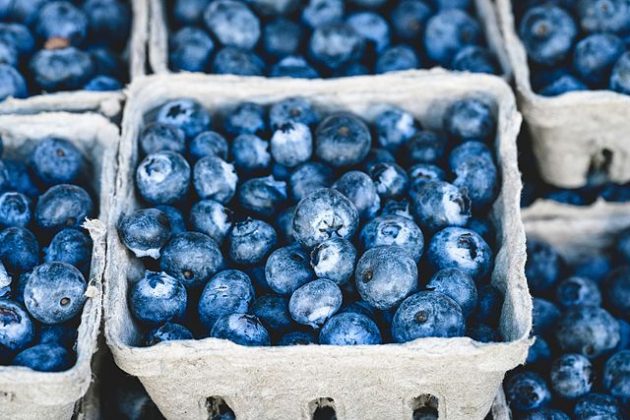
U.S. Agriculture Department agrees to help out Maine’s blueberry industry
by Patrick Whittle, The Associated Press

While U.S. politicians continue to blast Canada for subsidizing certain industries, they have approved up to $10 million to purchase surplus Maine blueberries as global oversupply and low prices have hurt growers

Maine’s blueberry growers are looking to target food service, restaurant chains and food manufacturing businesses
The U.S. Department of Agriculture has approved up to $10 million to purchase surplus Maine blueberries, the members of Maine’s congressional delegation said. Wild blueberries are one of the most important crops in Maine, but the industry is struggling with a steep decline in the prices paid to farmers.
The industry is challenged by oversupply following years of big harvests and competition from Canada, where the dollar is weaker.
“Maine wild blueberry growers are a resilient group, but global supply and pricing pressures are seriously impacting our business today,” said Roy Allen, a fourth-generation grower and processor in Ellsworth.
The USDA’s purchase is the second of its kind in as many years. It allotted up to $13 million to buy surplus blueberries last year. The congressional delegation said Thursday that the USDA’s purchase will hopefully help farmers by stabilizing prices.
The delegation requested the USDA purchase berries earlier this year. The fruit will be distributed to charitable groups like food banks.
“This investment to alleviate the supply issue, combined with the industry’s efforts to boost demand, will help create new opportunities for wild blueberry growers and support a bright future for this unique Maine crop,” the delegation said in a statement.
The USDA has said growers received 27 cents per pound for the blueberries last year, down 19 cents from 2015 and 33 cents from 2014. Wild blueberries are smaller than the more common cultivated blueberries. The vast majority of the crop is frozen.
The industry and state officials are collaborating to find new markets for the blueberries to help with the oversupply. The industry is looking to target food service, restaurant chains and food manufacturing businesses, said Nancy McBrady, the executive director of the Wild Blueberry Commission of Maine.